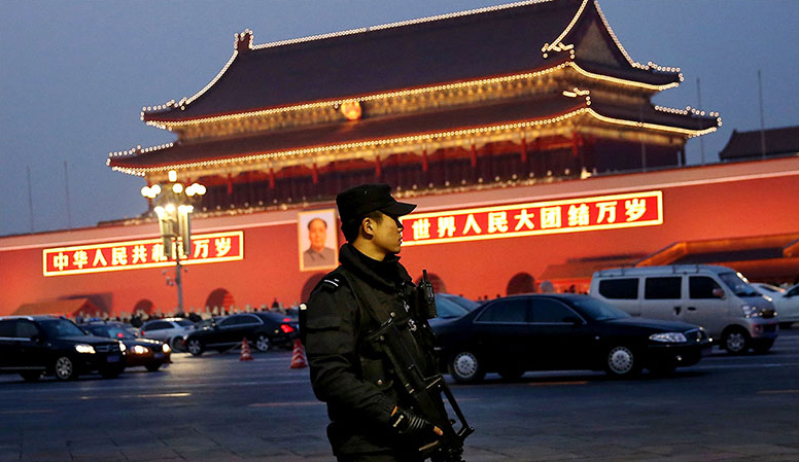
Chinese Communist Party rulers issued new guidelines that ban its members from following any religion, even after they retire from official service, according to media reports on Friday. The number of retired Chinese party officials has increased significantly in recent years, presenting a new set of situations.
"We have seen a number of new issues and problems emerging to do with the outlook, actions and the management of services linked to retired officials," an explanation of the opinion posted on the website of party mouthpiece the People's Daily state, reports Eurasia Review.
"We need to respond to and manage those problems. There is an urgent need to grasp accurately the overall situation and trends among retired officials," the post stated.
Local Chinese media accounts point toward retired military personnel being cited by officials and activists as part of China's population who could swing a tide of public opinion in their favor and against the party.
President Xi Jinping also launched an ideological campaign targeting any activity seen as "importing" values and cultural practices from overseas. He cited religion in particular as a means by which "hostile foreign forces" seek to exert a subversive influence in China.
Beijing-based democracy activist Zha Jianguo said the party is reinforcing its requirement that its members remain atheists to counteract a growing number of religious believers within its own ranks, reports Eurasia Review.
Zha said the increasing number of underground churches and house churches are seen as a threats. "If they are to control this threat outside the party, then they also have to control their own members and officials."
This new initiative comes just after a month-long campaign by religious affairs officials in the eastern province of Zhejiang to tear down publicly visible crosses from churches in the region, which is known as "China's Jerusalem" for its high concentration of Protestant believers.
Associate professor Ying Fuk Tsang of the Chinese University of Hong Kong divinity school said the party carried out an extensive survey of religious practices around the country, which yielded some worrying results, according to Eurasia Review.
"They found the numbers of party members holding religious beliefs or taking part in religious activities to be of great concern," Ying stated, who said inquisition-style meetings also were held so they have a record of who the believers are. "Then, they told them that they wouldn't be punished if they renounced their faith."
Ying said that many of the Communist Party's 80 million members have no faith in its political ideology.
"They didn't join the party because they believed in communism; they did it to be part of a privileged group," he said.
"That's why so many of them have wavered and started to get religion, and it's that process that the party sees as a threat, because it has created a situation where you have conflicted loyalties."






